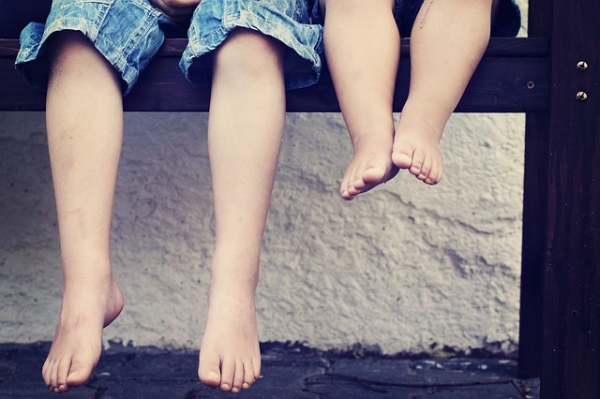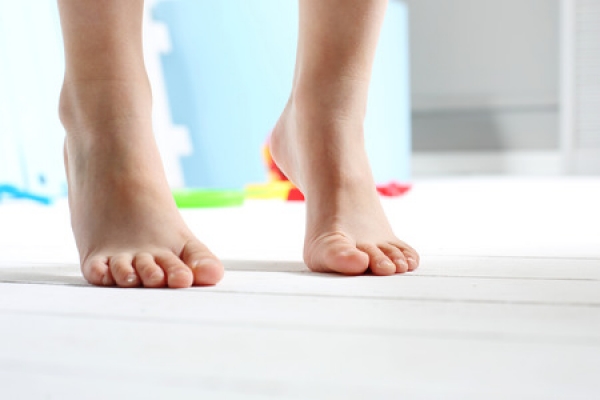Connect With Us
Blogs

Pediatric Foot Pain (2)
At Superior Foot & Ankle Care Center, we know that our parents in the Douglas Park/Los Angeles County area, just like parents everywhere, may have difficulty discerning when their children have a foot problem versus average complaining, aches, and pains, etc. Good podiatric health starts at birth, and proper care of the feet is necessary throughout childhood to prevent foot and ankle problems in adulthood.
As They Grow
For infants, a tremendous amount of growth occurs in the feet during the first year. For this reason, feet should be unrestricted and free to stretch, move, and kick freely. Avoid excessively confining footwear for babies. As your child becomes a toddler, they will start to walk—when they are ready. Don’t force children to take steps prematurely. Don’t be alarmed if your toddler appears to be in-toeing or walking with another strange gait at first. Over time, most children grow into a normal walking pattern. The most important factors in preventive podiatric care for children are good hygiene and properly fitting shoes. You should check where your child’s foot is in their shoes frequently as little feet can grow quickly.
Spotting a Problem
So just how do you know if your child is experiencing a foot problem? Since children are not always able to accurately articulate a foot or ankle problem, parents sometimes have to become sleuths and look for clues that may indicate an issue. Some tip-offs to foot trouble include:
- Walking on tiptoes
- Frequently tripping or falling
- Not wanting to engage in physical activities they have previously enjoyed
- Lagging behind friends in backyard play
- Complaining that their feet feel “tired”
If your child exhibits any of the above consistently or complains of foot or ankle pain, make an appointment at our Long Beach office by calling: (562) 420-9800. Our podiatrists, Dr. Victoria M. Foley and Dr. Constance Ornelas will examine your child’s feet and determine if a podiatric problem exists and the best treatment.
At Superior Foot & Ankle Care Center, our board certified foot and ankle surgeons, Dr. Victoria Foley and Dr. Constance Omelas are experts in pediatric footcare. One of the issues in evaluating children’s feet is that the patients are not able to articulate just what the problem or discomfort is. That’s when podiatrists have to become detectives and help track down the condition affecting the child. Here are some of the more common complaints we hear from our young patients and what they might mean:
“It hurts in the back of my foot.” Heel pain in children can be either an overuse issue or due to developmental factors. Medical conditions such as plantar fasciitis or Achilles tendonitis can affect children just as they do adults if an injury has occurred during a sport or if too much repetitive exercise is straining a particular part of the foot. In cases of children ages 8-15, the growth plate at the back of the heel is still forming and this leaves a vulnerable area that can become inflamed and result in calcaneal apophysitis (also known as Sever’s disease, although it is not actually a “disease”).
“It’s too far to walk.” If children complain that their feet hurt after a long walk or that their feet feel “tired,” it can be a sign of flatfeet. This can be tricky to diagnose because children don’t develop arches until between the ages of four and six. The foot doctor has a number of ways to check for flatfeet and the solution may be as simple as an insert for the shoes that will help shape and train the arch to develop properly.
“Ow! Don’t touch my big toe!” Extreme pain in the side of a toe, especially if the toe looks red and swollen is most likely pointing to an ingrown toenail. If toenails are cut to short or children pick them off and they end up with a curved edge, the nail may start to grow down and into the skin. This causes extreme pain and, if the nail actually punctures the skin, can lead to an infection.
“There’s something on the bottom of my foot.” Plantar warts are hard growths that most often form on the balls of the feet or the heel. Caused by a viral infection that enters the skin through tiny cuts, it is very common in children. They may not hurt initially but can grow and spread. Usually a topical medication or freezing will remove the wart.
As children grow and become more responsible for their own personal hygiene parent see less of their feet. It’s important to periodically examine your child’s feet and to listen seriously to foot complaints. If your child is experiencing any discomfort or pain in the toe, foot or ankle, contact our Long Beach office for an appointment today.


